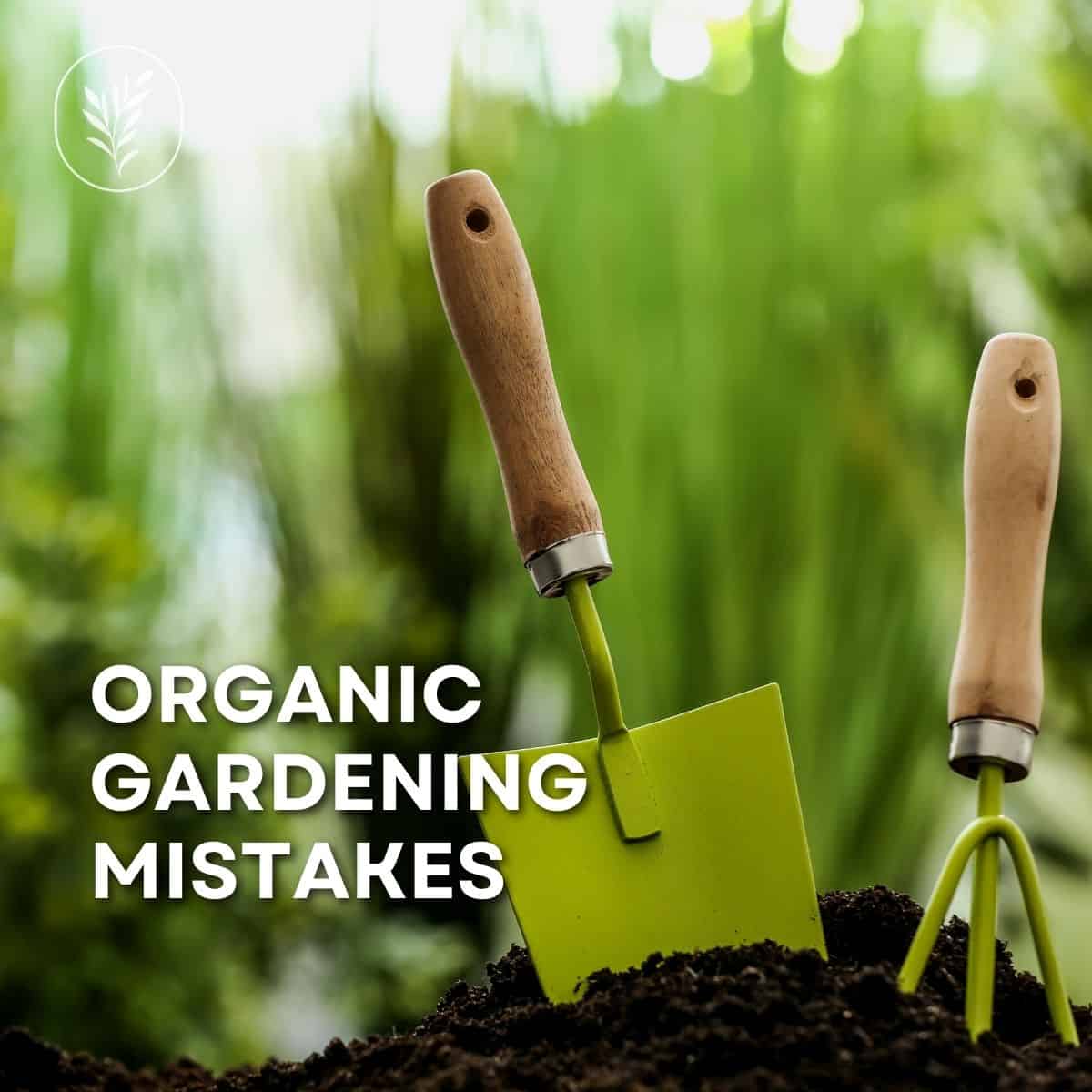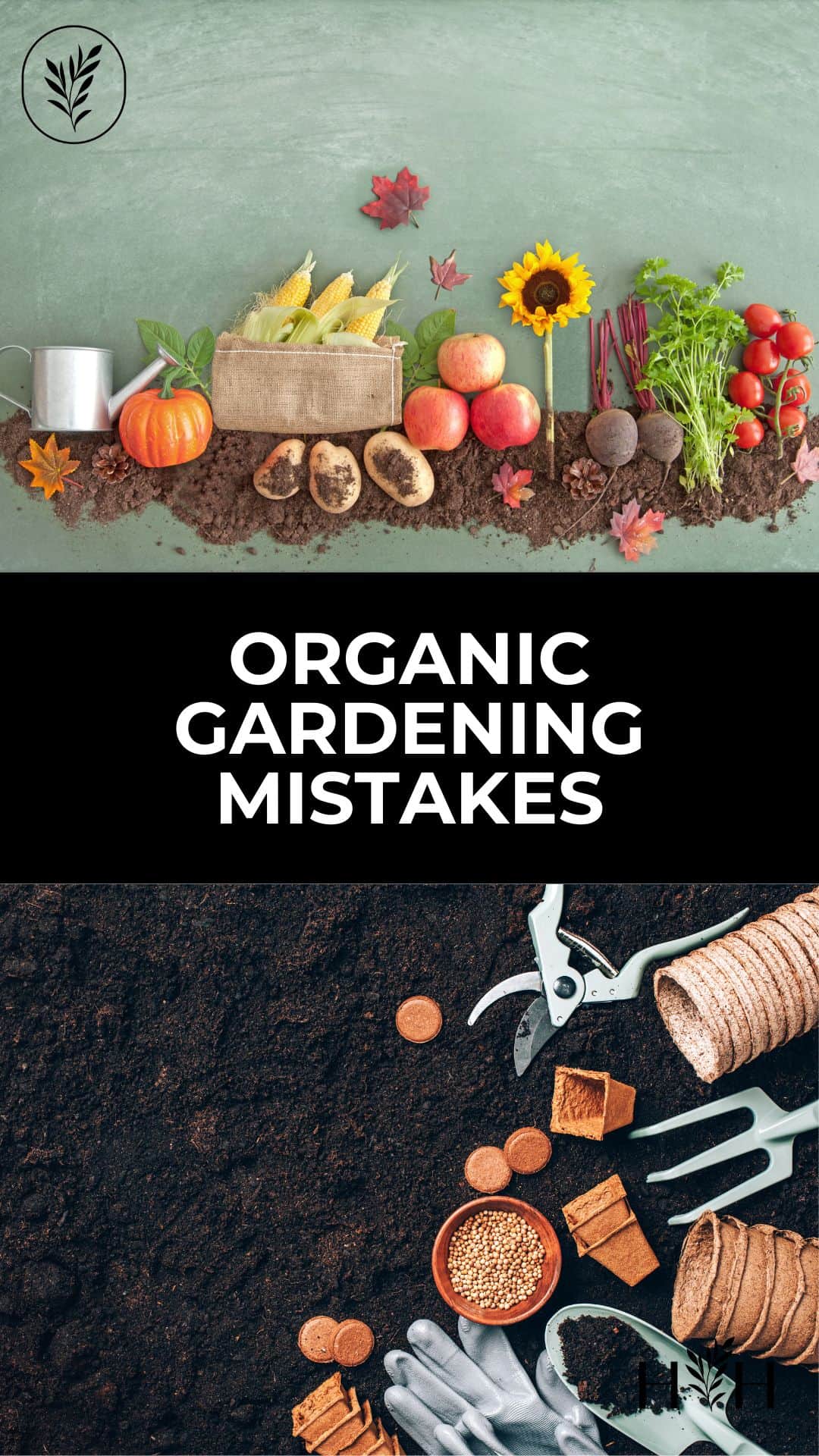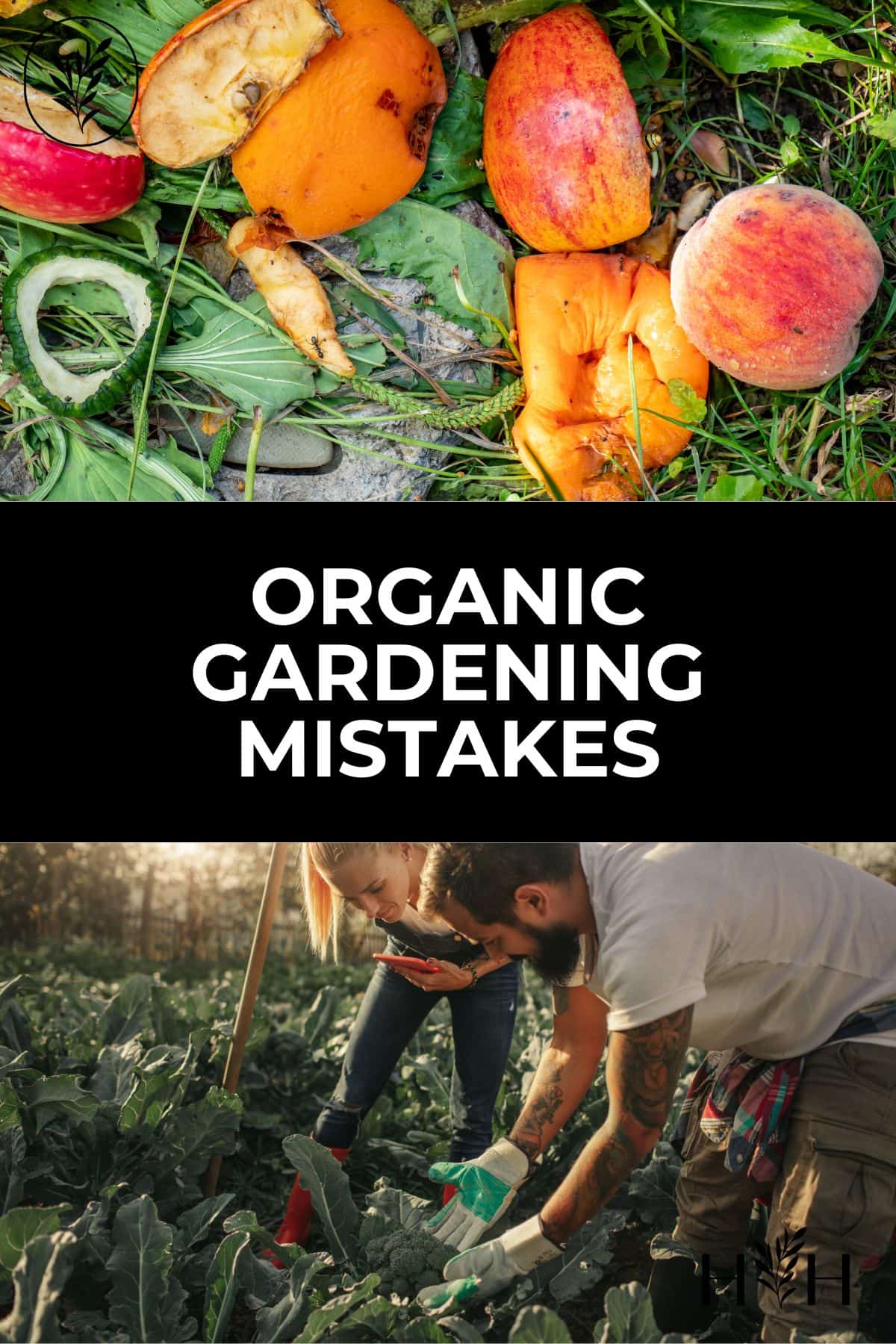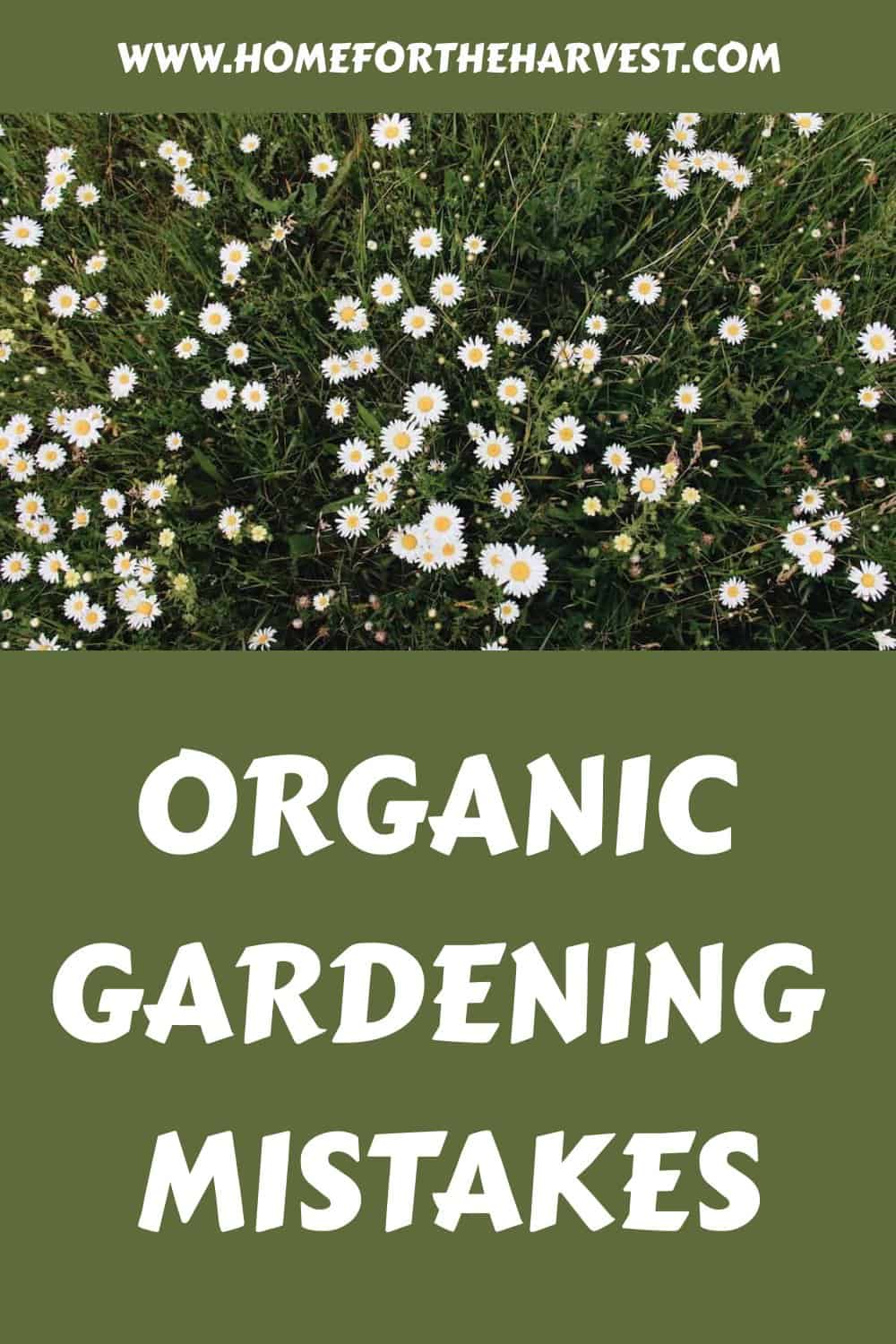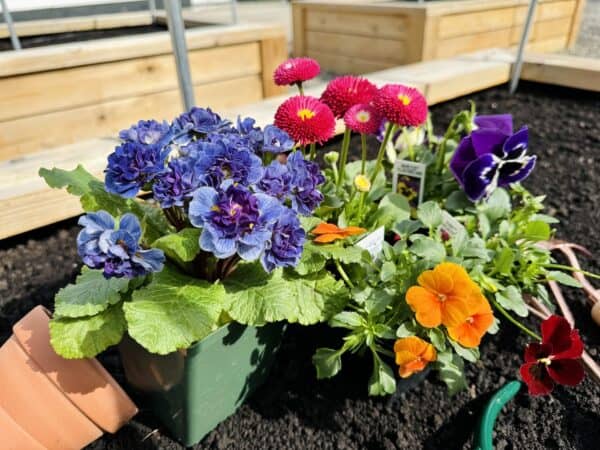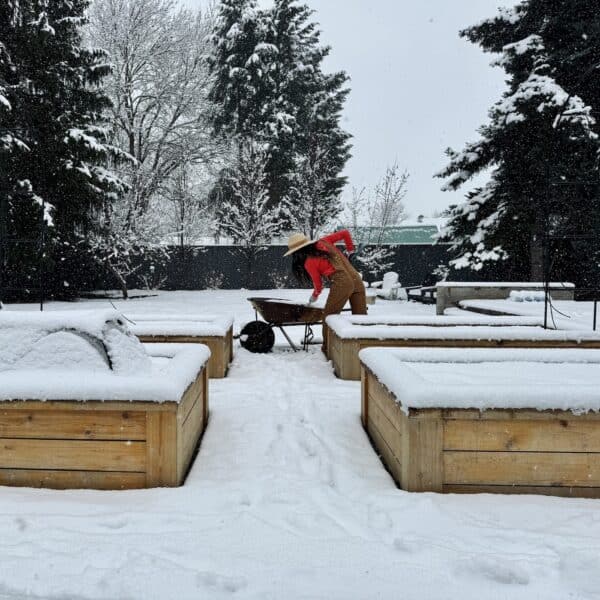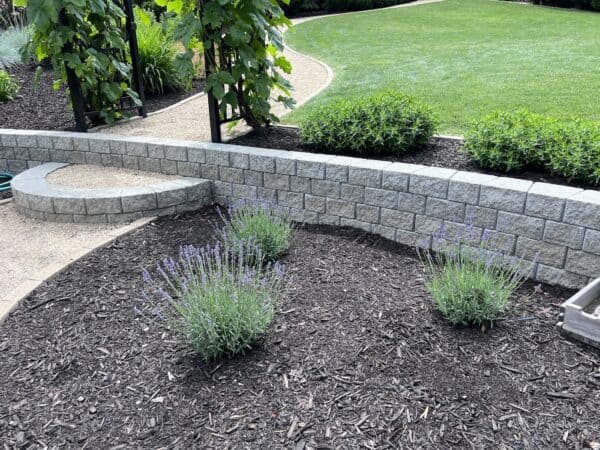Wondering about organic gardening and trying not to make too many mistakes? There is something so wonderfully idyllic about a home garden. They definitely shouldn’t conjure up images of scary chemicals. That being said, there are some really common ways that your little backyard organic garden can become contaminated. Here are the top 5 common organic gardening mistakes.
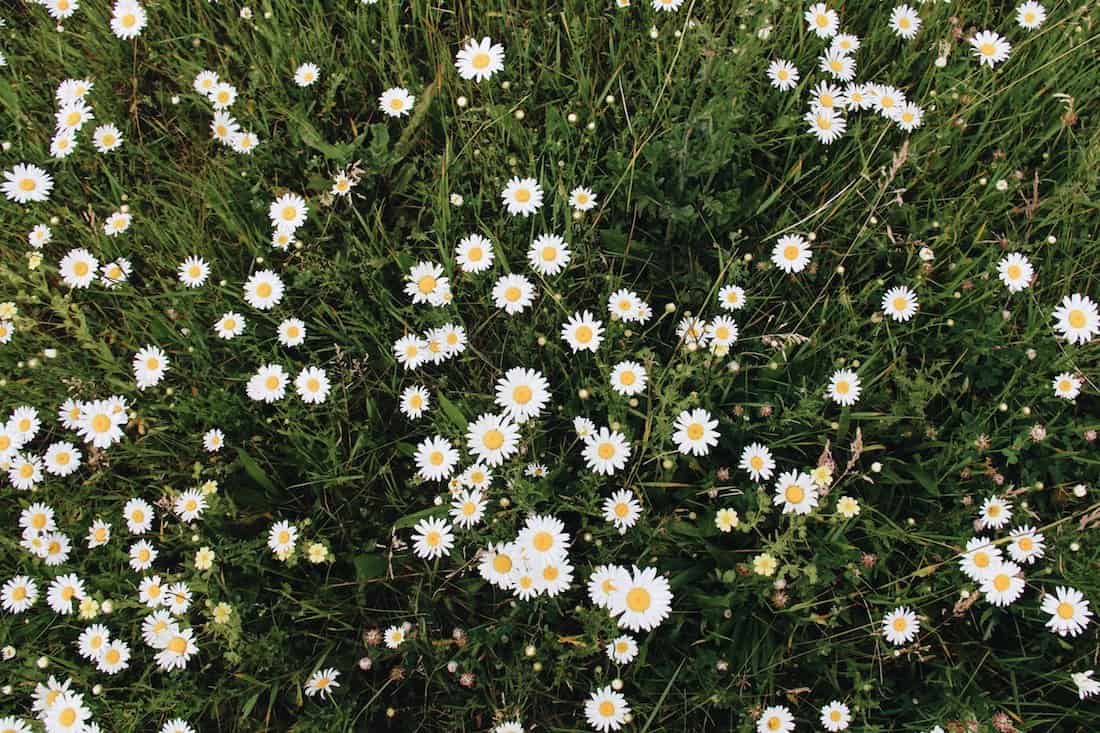
1. Spraying synthetic chemical pesticides/fungicides/herbicides
The use of synthetic chemicals is the number one organic gardening mistake. Spraying chemicals in your garden that are designed to put an end to life will introduce chemicals that will harm life in your garden. Seems obvious eh? This one shouldn’t be a big surprise. Spraying your garden with chemicals is a surefire way to contaminate your produce. But sometimes these horticultural chemicals can be sneaky!
Even if you spray herbicides just to clear the ground prior to planting, trace amounts will remain in the soil and contaminate your food. Your organic garden may also be affected by nearby spraying. Chemicals sprayed on nearby trees, lawns, or neighbors’ gardens can negatively affect your garden.
Spraying chemical pesticides to control pest insects that are attacking plants will also obviously introduce chemicals into your food. These chemicals won’t just wash away with the next rain. When they do wash away, they will flow into the groundwater, contaminating the environment and potentially harming wonderful natural ecosystems.
Spraying chemicals in the garden is simply not worth it. It’s not just a mistake – it’s a harmful error. They are an unnecessary health hazard to you, your family, and your family’s pets, and beneficial insects. Investigate organic alternatives to your garden problems (such as neem oil or diamatacous earth) rather than starting with chemicals.
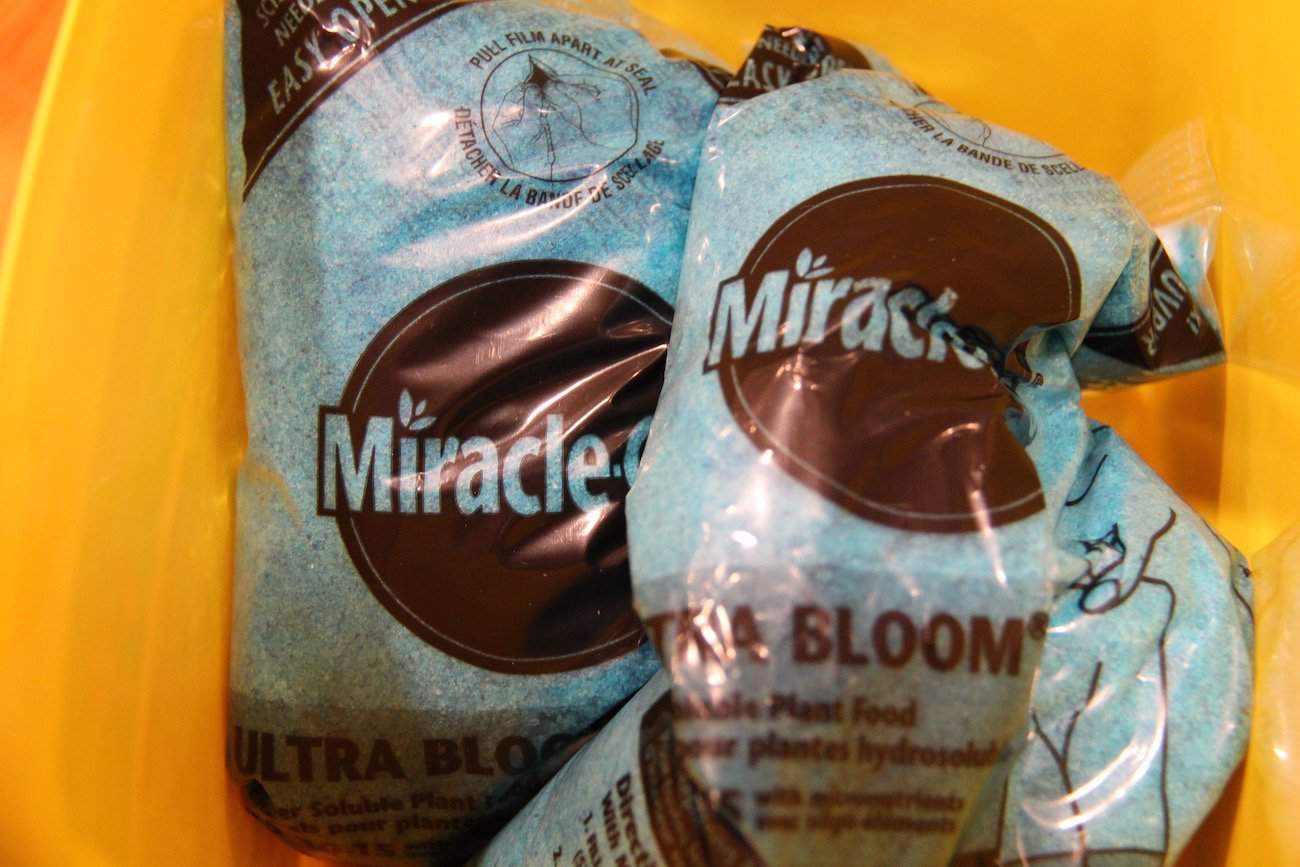
2. Using synthetic chemical fertilizer is a common mistake in organic gardening
Synthetic chemical fertilizers are another common mistake employed by new organic gardeners. Chemical fertilizers, the ones with colorful crystals, are made of synthesized forms of common minerals required for the healthy growth of plants. These fertilizers are sold at almost every garden center and big box store and are generally labeled with an N-P-K (Nitrogen-Phosphorus-Potassium) ratio on the package.
The big numbers sound great! The bigger the better eh? The bad news is…chemical fertilizers are not ok in organic gardens. A good tip: if it’s made of blue crystals…it’s probably not natural.
Synthesized fertilizers generally deliver many more minerals more quickly than organic fertilizers or soil conditioners (in the short term). This seems like a good thing, except that it can burn plants and harm soil organisms. Excess minerals also wash out of the soil, contaminating local groundwater and affecting natural ecosystems. The production of synthetic fertilizer is also quite energy-intensive (see quote below). Here is a detailed article all about organic fertilizers and how they differ from synthetic fertilizers.
“Nitrogen in the atmosphere is the primary original source of this essential element. Under very high temperatures and pressures, the nitrogen is fixed with hydrogen from natural gas to produce ammonia gas, NH3. Although this fixation is of vital importance, it consumes tremendous quantities of energy – as critics have pointed out.”
The Nature and Properties of Soils, by Nyle C. Brady and Ray R. Weil (12th ed.)
Choosing an organic fertilizer or plant food such as homemade compost or worm castings is a much smarter choice for the environment. Pre-packaged organic plant fertilizer options that are safe for organic gardening are also available at local garden centers and online (here are some of the best organic fertilizers). You’ll be reducing environmental degradation in your local watershed and potentially supporting local suppliers. Best of all, your plants will love it, both in the short and long term.
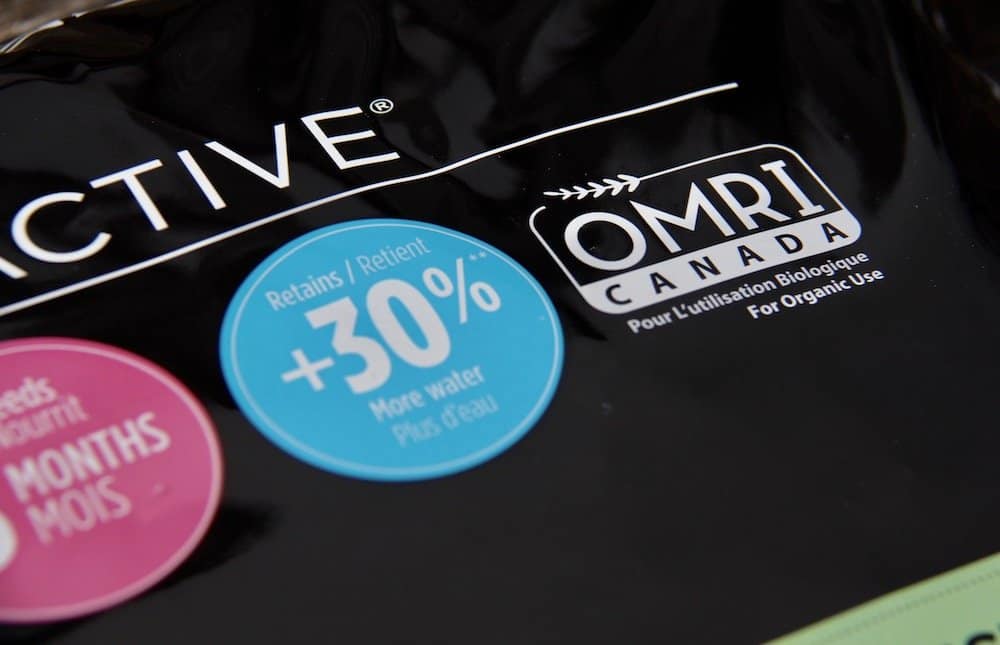
3. Skip sneaky conventional potting soil that contains chemical fertilizer
This is SUCH a common organic gardening mistake! It is possible to use chemical fertilizer without even knowing it! If you’re not careful, it could sneak in with your bag of potting soil. Always choose OMRI-Listed bags of potting soil that are approved for organic use.
Check out the label on your potting soil to ensure it hasn’t been “enriched” with unnamed “additives” to help plants grow. A giveaway is if the label is advertising benefits such as “bigger vegetables” or “bigger blooms on flowers” – without specifying that the added fertilizer is naturally derived. Some potting soils don’t have added chemical fertilizers, and are perfectly fine for organic gardening, but some do have added synthetic chemicals.
Potting soil should normally contain a bulk medium such as peat or coconut coir, an air-trapping medium such as perlite or vermiculite, and a pH-balancing agent such as lime. It may also contain compost, composted manure, or worm castings. All of these ingredients would generally be considered safe for organic gardening. Anything else with a dodgy, chemically-sounding name is worth looking up on this list of acceptable organic garden amendments.
Here are some high-quality organic potting soils (that don’t contain hidden chemical fertilizers):
- Espoma Organic Potting Mix
- Burpee Organics Premium Coconut Coir Growing Mix
- PRO-MIX Organic Vegetable & Herb Potting Mix
Stick to sterile potting soil made from natural ingredients like peat moss and perlite. Use worm castings in your seed starting mix, and spread a bit of homemade compost over your garden soil. Don’t mess around with potting soil that contains synthetic chemical fertilizer!
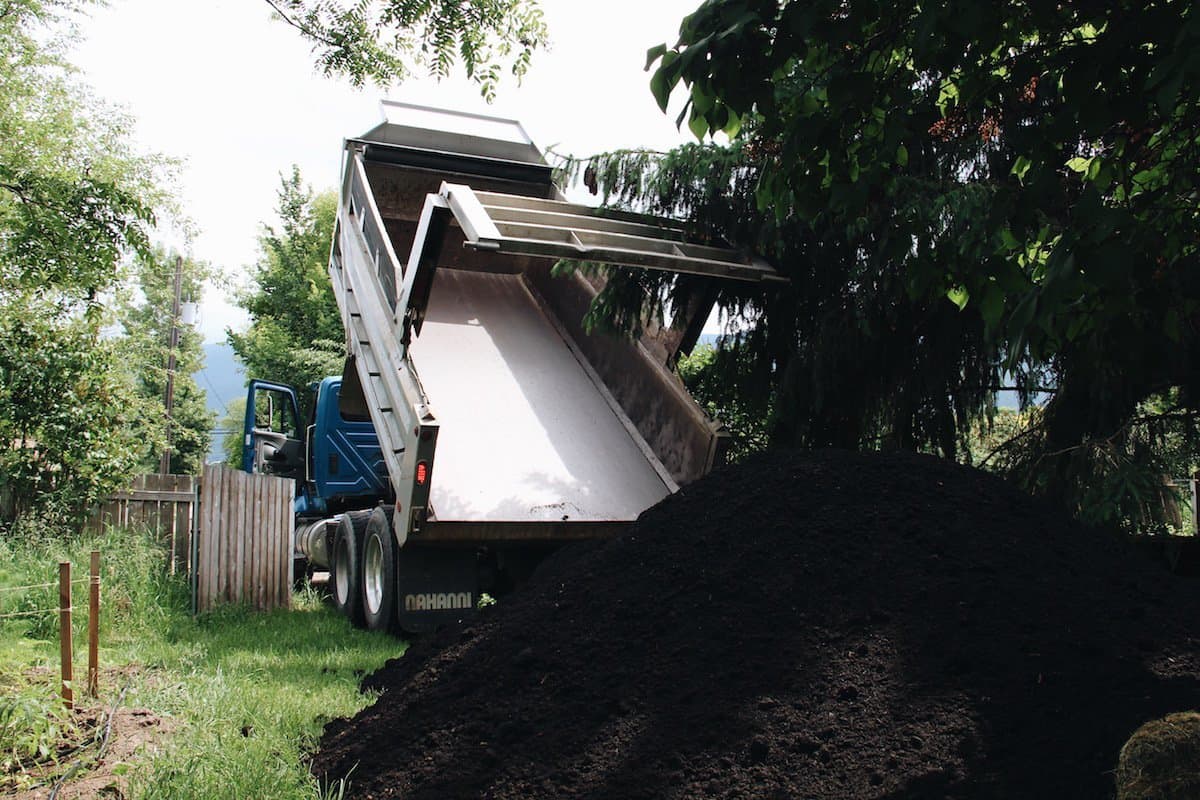
4. Contaminated ground should be avoided or addressed
It is possible for your otherwise organic garden soil to be contaminated even without bringing in chemicals. It’s a mistake not to consider the history of the soil in an organic garden, because generally, contamination occurs long before you purchase the house. Perhaps the existing land was beside a big road or gas station? Maybe there was a buried oil tank in the area that is now your garden? The history of your home and the surrounding properties may come with some less-than-organic history.
It could also be that the land was nearby an old roadway. The areas beside old roads can be contaminated with lead (from lead paint and leaded gasoline), as well as petroleum products. Dust in the garden can be a major hazard to gardeners, filling your lungs with tiny lead particles.
Get your soil tested for contamination if you are at all concerned. If the tests come back positive for chemicals, build yourself some raised beds and bring in some new clean soil to work with and grow your vegetables in. Raised beds will make a much better organic garden than trying to salvage the existing soil.

5. Using the wrong manure in an organically-managed garden
Now that we’ve talked about synthetic man-made chemicals, you may be thinking..I’ll just use manure! While some kinds of well-composted manure are safe for organic gardening, some are not. In general, well-composted manure from herbivore animals such as rabbit pellets can be considered safe for organic gardening.
Manure that is not composted, or is from meat-eating animals, is a mistake in organic gardening. These types of manures are definitely not considered a safe addition to your organic garden. Manure from pets like cats and dogs can be particularly problematic. You’ll want to keep these animals out of your garden area.
Toxoplasma gondii is a nasty disease that can be transferred to garden soil from cat poop. If you live in an urban area, there is a pretty good chance that cats are or have been roaming in your yard. Although the virus isn’t a chemical fertilizer, it’s still a source of contamination that could have adverse effects if you don’t take the necessary precautions.
It is good practice to wear gloves when gardening (preferably with the rubber coating), as well as closed-toe shoes or rubber boots. Don’t use your gloved hands to wipe your face Pulling your hair back before you head out to the garden can help keep you from brushing loose hair out of your eyes.
Food from the garden should always be washed prior to eating (especially root crops). Set up a nice garden utility station with clean pairs of gloves, garden rubber boots, and a veggie washing sink. Having a nice clean utility spot will make it much easier to wash off a majority of garden soil before bringing your produce inside to be properly cleaned and prepared.
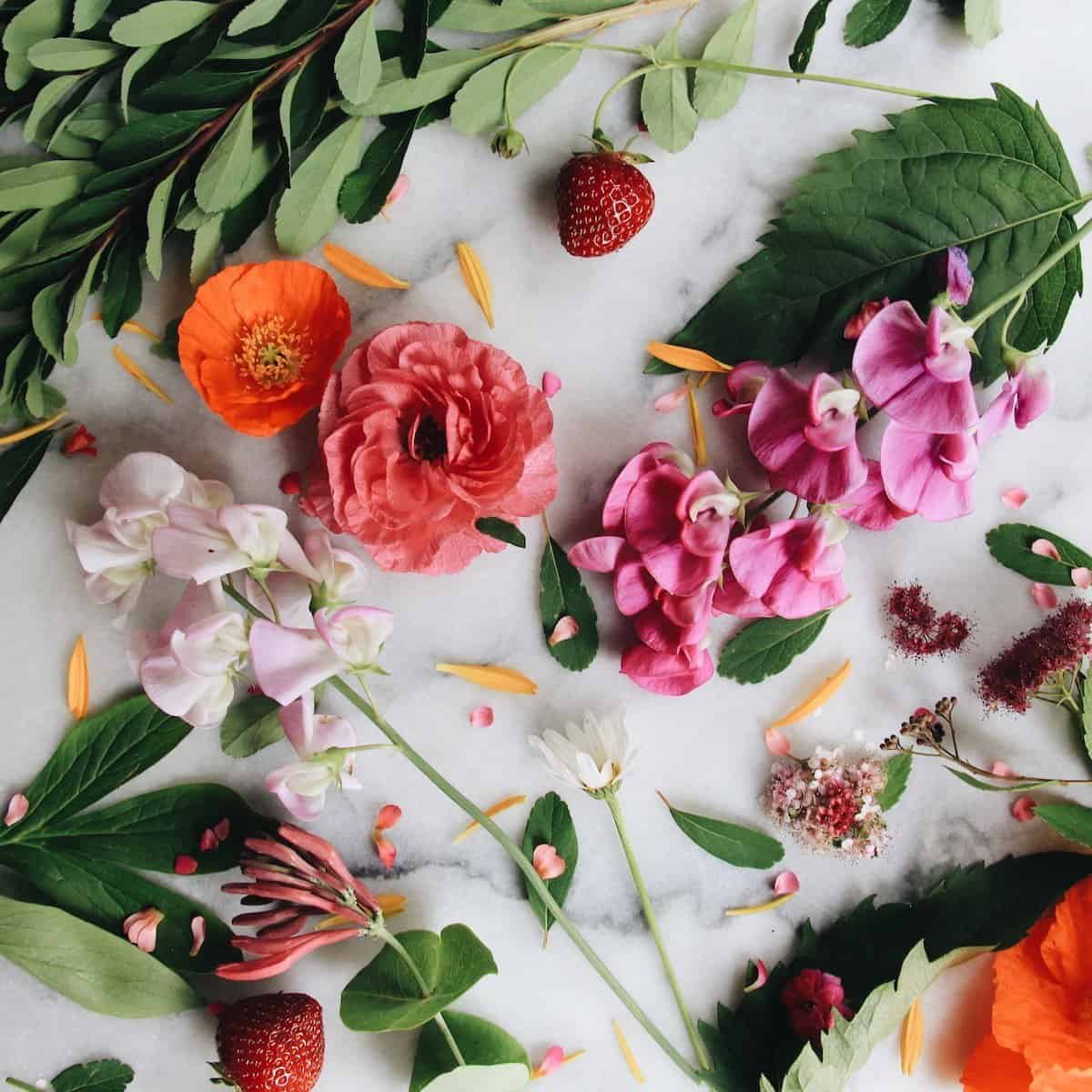
Avoiding common organic gardening mistakes in your yard
Now that you’ve read this post, go purge your garden shed of any leftover chemical fertilizers or pesticides/herbicides/fungicides. These chemicals should be safely disposed of at your local disposal center, transfer station, or recycling depot (check with your municipality). Disposing of them safely will prevent further groundwater contamination. You may also want to consider a soil test, and stock up on rubber-coated garden gloves. Then give your organic garden a nice feeding with some homemade compost!
For more detail on switching to organic in your garden (and things to avoid in an organic garden), check out Gaia’s Garden (one of my favorite gardening books!).


